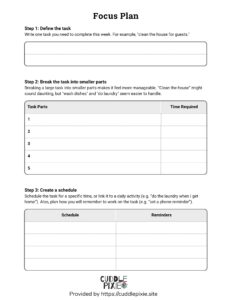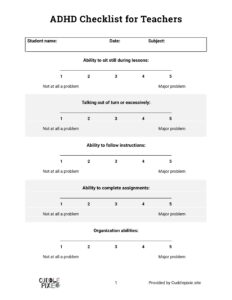Parenting a child with ADHD comes with its unique set of challenges, especially when it comes to navigating the school environment. From academic struggles to social difficulties, children with ADHD may face various obstacles that can impact their performance and well-being in school. In this article, we’ll explore effective strategies and resources to help parents support their child with ADHD in overcoming school challenges and thriving academically and socially.
Table of Contents
Understanding ADHD in School
ADHD, or Attention Deficit Hyperactivity Disorder, is a neurodevelopmental disorder characterized by symptoms of inattention, hyperactivity, and impulsivity. In the school setting, these symptoms can manifest in various ways, such as difficulty focusing on tasks, impulsively blurting out answers, and struggling to follow instructions. It’s essential for parents to understand how ADHD affects their child’s behavior and academic performance to provide the necessary support and accommodations.
School Challenges for ADHD
Children with ADHD may encounter a range of challenges in school, including:
- Difficulty paying attention in class
- Poor organization and time management skills
- Impulsive behavior and difficulty controlling impulses
- Struggles with completing assignments and homework
- Social difficulties, such as making friends and maintaining relationships
These challenges can significantly impact a child’s academic success and overall well-being. However, with the right strategies and support, parents can help their child navigate these challenges effectively.
Supporting ADHD in the Classroom
One of the key strategies for supporting a child with ADHD in the classroom is to work closely with teachers and school staff to develop an individualized education plan (IEP) or a 504 plan. These plans outline specific accommodations and strategies to help address the child’s unique needs and ensure their academic success. Some common accommodations for children with ADHD include:
- Preferential seating near the front of the classroom
- Extended time for assignments and tests
- Breaks to help manage hyperactivity and restlessness
- Use of fidget tools or stress balls to help improve focus
- Providing clear and concise instructions for tasks and assignments
By collaborating with school professionals and advocating for their child’s needs, parents can ensure that their child receives the support and accommodations necessary to thrive in the classroom.
ADHD Classroom Management
Effective classroom management techniques can also play a crucial role in supporting children with ADHD. Teachers can implement strategies such as:
- Breaking tasks into smaller, more manageable steps
- Providing visual aids and cues to help with organization and task completion
- Offering positive reinforcement and praise for effort and progress
- Implementing a structured daily routine to help with predictability and consistency
- Encouraging active participation and engagement in learning activities
By creating a supportive and structured learning environment, teachers can help children with ADHD succeed academically and develop essential skills for managing their symptoms.
ADHD School Resources
There are various resources available to support children with ADHD in school, including:
- Educational websites and online resources for parents and educators
- Support groups and advocacy organizations for children and families affected by ADHD
- Books, articles, and publications on ADHD management and intervention strategies
- Workshops, seminars, and training programs for parents and teachers on understanding and supporting ADHD in the classroom
By accessing these resources and staying informed about the latest research and best practices, parents can become effective advocates for their child and ensure they receive the support they need to succeed in school.
Free Resources &
Our free resources are readily available for download, offering convenient access to valuable materials.
ADHD Focus Plan Worksheet

This ADHD Focus Plan Worksheet is designed to help you identify your goals, prioritize tasks, and implement strategies to enhance your children’s focus.
ADHD Checklist for Teachers Worksheet

We have developed a tool specifically for this purpose: the ADHD Checklist for Teachers. It is designed to be completed by your clients’ teachers to gather information about their behavior in school. The checklist utilizes a simple Likert scale and includes several short questions to provide a comprehensive assessment.
Final Words
Navigating school challenges with a child with ADHD can be challenging, but with the right strategies and support, parents can help their child overcome obstacles and thrive academically and socially. By understanding ADHD, collaborating with school professionals, implementing effective classroom management techniques, and accessing available resources, parents can empower their child to reach their full potential and succeed in school and beyond. With patience, perseverance, and advocacy, parents can make a meaningful difference in their child’s educational journey.
